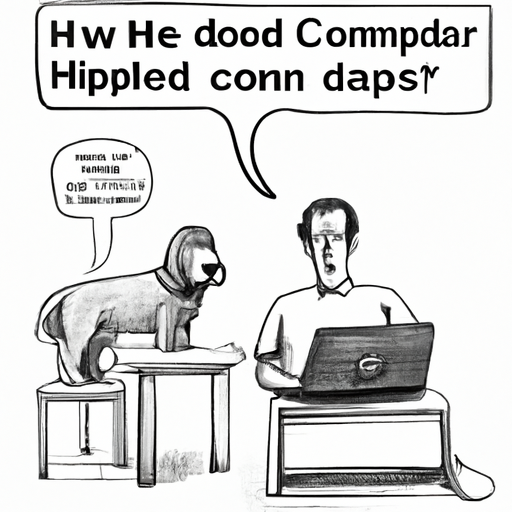As a caregiver for your four-legged companion, it’s essential to understand that just like humans, dogs too can suffer from constipation. Let’s dive into the world of canine health and explore how you can help your dog when they’re struggling with this uncomfortable issue.
Understanding Canine Constipation
Understanding what constipation in dogs looks like is the first step in helping your furry friend. Just like in humans, constipation in dogs means they are having difficulty, or are unable to, pass stools. You may notice your dog straining, showing signs of discomfort, or producing fewer stools than normal. Regular bowel movements are vital for a dog’s health, as it helps to rid their body of waste and toxins.
- Signs of Constipation
- Straining to defecate
- Producing small, hard stools
- Reduced appetite
- Lethargy
Causes of Constipation in Dogs
There are numerous reasons why your dog might be constipated. It could be due to dietary issues, lack of exercise, or even a side effect of medication. Understanding the cause can help you determine the best course of action.
- Dietary Issues: A low-fiber diet can often lead to constipation. Ensure your dog’s diet is balanced and contains an appropriate amount of fiber.
- Lack of Exercise: Regular exercise is essential for a healthy digestive system. Make sure your dog gets plenty of walks and playtime.
- Medication Side Effect: Some medications can cause constipation. If your dog has recently started a new medication, this could be the culprit.
How to Help a Constipated Dog
If you notice that your dog is constipated, there are several steps you can take. Depending on the severity of the constipation, you might want to consult with your vet.
- Increase Water Intake: Hydration can help to soften stools, making them easier to pass.
- High-Fiber Foods: Consider adding high-fiber foods to your dog’s diet, such as pumpkin or peas.
- Exercise: Regular physical activity can help stimulate bowel movements.
| Potential Solutions | Notes |
|---|---|
| Increase Water Intake | Always have fresh water available |
| High-Fiber Foods | Consult with your vet before changing your dog’s diet |
| Exercise | Regular walks and playtime are beneficial |
When to Seek Veterinary Help
If your dog’s constipation is severe, or if it continues for more than a day or two, it’s time to seek veterinary help. Your vet can perform an examination to determine the cause of the constipation and recommend a treatment plan.
Note: If your dog is in pain, is vomiting, or if you see blood in their stools, seek veterinary care immediately.
FAQs
Q: How long can a dog go without pooping?
A: Most dogs poop at least once a day, but it can vary. If your dog hasn’t pooped in more than two days, consult with a vet.
Q: Can I give my dog human laxatives?
A: No, never give your dog human medication without consulting a vet. Some human medications can be dangerous for dogs.
Q: Can constipation in dogs be prevented?
A: Yes, regular exercise, a balanced diet, and plenty of water can help prevent constipation in dogs.
As a caregiver, it’s important to be vigilant about your dog’s health. Understanding how to help constipation in dogs can make a big difference in their comfort and overall well-being.



